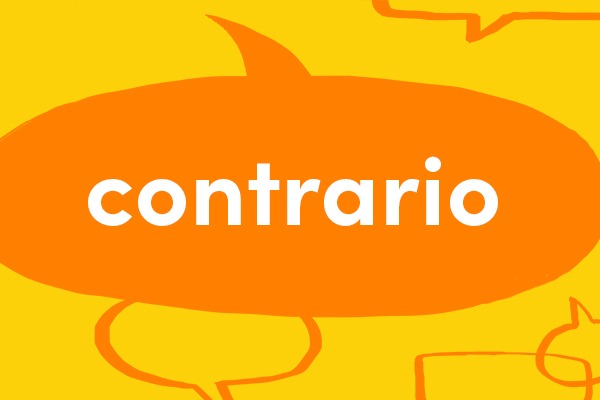This week’s Spanish word of the week is contrario
Contrario is an adjective that means opposite; opposing . To hear how contrario is pronounced, you can click the icon below.
function playAudio(url) { new Audio(url).play(); }Both the core meanings of contrario describe one thing being set against another, either physically or figuratively.
In its physical sense, you use contrario to talk about directions:
un vehículo que venía en sentido contrario a vehicle which was coming in the opposite direction
Él iba en dirección contraria. He was going in the opposite direction.
In its figurative meaning you use contrario to talk about equipos and bandos contrarios — opposing teams and opposing sides:
Santos se encuentra en el bando contrario. Santos is on the opposing side.
el abogado de la parte contraria the opposing party’s lawyer
When someone or something is contrary, against or opposed to something else, you can express this with contrario followed by a:
La resolución es contraria al espíritu del acuerdo. The resolution is contrary to the spirit of the agreement.
Se mostraron contrarios a participar. They were against taking part.
Come back next week to learn a new word and expand your Spanish vocabulary!



